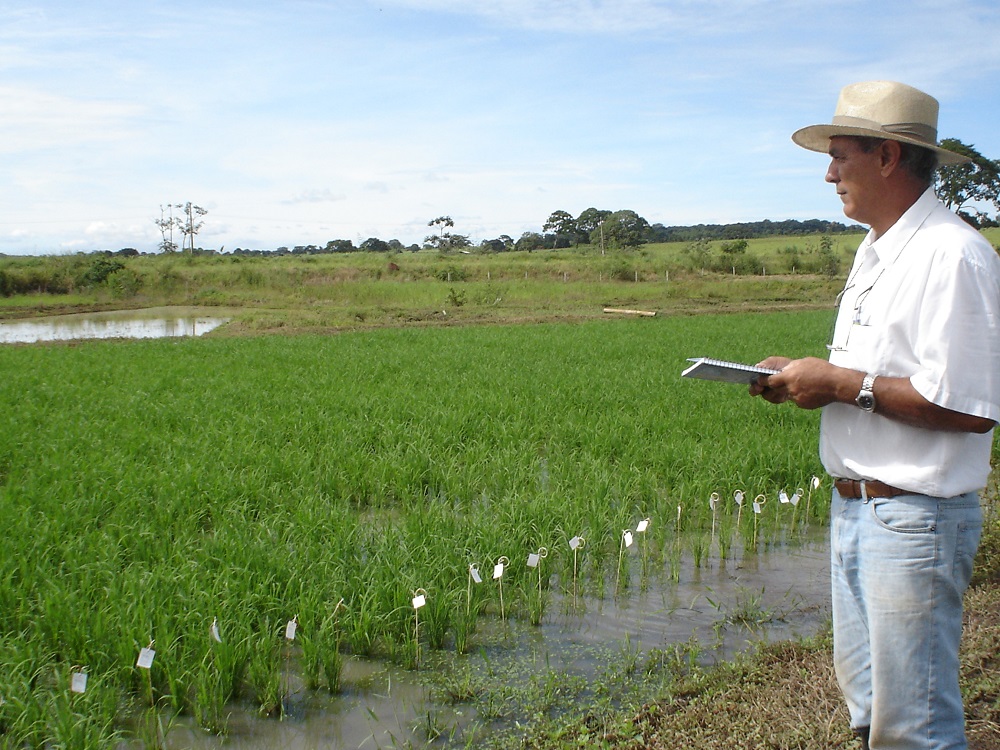The most outstanding rice breeder in Brazilian history started a new era of rice cultivars and leaves behind a legacy that transcends boundaries.
Dr. Orlando Peixoto de Morais was a plant breeding icon in Brazil and the mastermind of the rice breeding program at Empresa Brasileira de Pesquisa Agropecuária (Embrapa). In fact, from the numerous messages Embrapa received regarding his passing, many of his colleagues consider him the most outstanding rice breeder in Brazilian history.
Life brings challenges to all of us, but Dr. Morais transformed his challenges into opportunities. Born and raised on a farm, he faced the difficult life of living in a city with few financial resources to obtain his degree in agronomy at the University of Viçosa in Minas Gerais. Notwithstanding, he quickly built a reputation among his fellow students, many of them coming to him for help in different disciplines, especially those related to quantitative genetics. This was not only because of his impressive knowledge but also because of his remarkable patience and willingness to help. Dr. Morais was literally a point off the curve so that some of his professors had to grade him separately to avoid skewing the grade distribution of all other students downward.
As soon as he started working as a rice breeder at the state research institution Empresa de Pesquisa Agropecuária de Minas Gerais, the country started seeing a new era in the development of rice cultivars, which made a huge impression on the country’s rice value chain and consumers.
In 1984, the upland rice cultivar Guarani was released. Guarani, a high-yielding short-cycle upland rice for midwestern Brazil with good cooking quality and blast and drought resistance, was planted on millions of hectares.
The biggest impact on Brazil’s rice production was attained with cultivar BRS Primavera. Released in 1997, it was the first upland cultivar that was comparable with irrigated rice in terms of grain quality and commercial value. It also set the new standard for upland varieties in Brazil. The production of high quantities of good-quality rice has strengthened the entire rice value chain in the region, making it self-sustaining.
Over the past few years, Brazil’s rice breeding program experienced increasing gains in grain yield, nearly 1.5% per year.
Dr. Morais developed several methods to enhance breeding strategies and calculate the genetic gains of breeding programs, both ex ante and ex post. These studies allowed breeders to improve the design of their breeding programs as well as estimate the impact of improved varieties. The successful application of recurrent selection to Embrapa´s rice breeding program, another major technical innovation introduced by Dr. Morais, is delivering higher genetic gains for yield than other rice breeding programs around the world.
Outside technical aspects, Dr. Morais had outstanding networking skills. He put his easygoing personality to the service of the national rice breeding network, which consequently became more united and efficient in working together and achieving genetic progress.
To conclude, the only thing left to say is
“Orlando, we, the rice scientists of Brazil, will miss you. We will miss your kindness, your constant smile, and your friendship. We are crying, but God should be smiling by having you around. Thank you for everything!”
_______________
Dr. Guimarães is the Communication Supervisor at Embrapa Rice and Beans.








